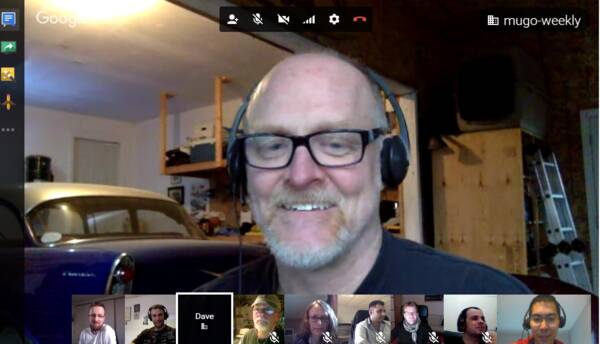How Mugo's corporate culture leads to happier employees
By: Dave Fearnley | April 24, 2018 | Work at Mugo
Mugo Web puts emphasis on keeping its employees connected -- through good times and bad.
Recently, life threw me a curveball that affected my productivity at work. It made me realize how important communication and compassion at work can be. Fortunately I work at a company where that kind of environment is fostered and nurtured.
Mugo Web is a small web development company comprised of developers, project managers, and marketers from diverse backgrounds. Although all employees are encouraged to participate in Mugo’s corporate culture, their own cultures and personal experiences are also celebrated and recognized for the way they contribute to enriching the work environment. And that includes the highs as well as the lows.
Paramount to Mugo’s success is the determination to forge a workplace culture that values effective communication above all else. As co-founder Peter Keung describes in this post, because we work with a globally distributed team, we use several tools to stay in touch throughout the day. Team members use these tools to keep each other informed of interactions with clients as well as progress on their projects. As a Mugo team member, I often work with people in different time zones, sometimes as much as 12 hours apart, with teammates in Germany, Australia, Brazil, and across Canada. We all document our work in a ticketing system so that fellow employees can review work while some of us are snuggled in bed.
Communication goes beyond the written word
Verbal communication is as important as the written word. Sometimes a video discussion is needed to sort out a problem. At Mugo we always strive to touch base through Skype or Google Hangouts on a regular basis to maintain a personal relationship among team members. As a team we try to be as accommodating as possible when trying to tag up across time zones and continents.
All this would be meaningless without the support of the company principals, Peter and Doug, who practice what they prescribe to the people working with them. I use the term “with them” as opposed to “for them” purposefully, and I hope the significance of the difference is appreciated. These are not managers disseminating directives, these are hands-on team leaders with a wealth of experience, working and contributing alongside the rest of the project group. All Mugo employees can see that Peter and Doug lead by example by working as hard if not harder than their employees. Personally, I find it easier to relate to management that understands the day-to-day grind of the job. On top of this regular workload, Mugo's leaders have the added task of keeping their employees on course and aware of their communication responsibilities.
Compassion starts with communication
Communication is important not just for issues related directly to the job. It involves getting to know your co-worker or employee on a more personal level. The 7 Mugos who work together regularly in head office have the luxury of office chit-chat and other subtle interactions that close proximity allows. Something as simple as sharing a lunch or shooting some hoops on a break can help foster caring and comradery. This is not lost on those who are in charge of keeping the Mugo ship afloat. We all have personal lives that affect our work, and our work will always have some impact on our personal lives. Fostering open communication about one’s personal life shows compassion for the person outside of work.
It’s important to have compassion and understanding that life and work are intertwined. People get sick. People sometimes need surgery and recovery time. Sometimes life knocks you off-centre and steals your focus. A physically and emotionally healthy employee is a productive employee, but more importantly, an employee who feels cared for and supported when times are not so rosy will find strength from their employer, and that fosters loyalty. Compassion is reciprocal. If you lend a caring ear toward a fellow employee, they will naturally return the gesture -- hey, sometimes the boss has a crappy day too!
Compassion requires listening first
How do you create a culture of compassion? At Mugo, every face-to-face meeting begins with “How are you doing?” or “How’s your day been?” or “How is your daughter? You said she was sick yesterday.” Sometimes a meeting will shift away from the business of the day when an employee is going through a particularly tough time. Listening is often the best tool a team leader has in the toolbox.
Too often, in this day and age, loyalty between a company and its employees is shaky, if not completely absent. What with employees jumping ship for greener pastures, and employers treating workers like a resource to exploit, it can be hard to find a workplace where you really feel cared for and to which you feel attached. Life will always dictate someone’s decision to stay with a company or move on -- there are no guarantees. But by mentoring communication and showing compassion for their team, our leaders at Mugo have created a culture of compassion, which breeds trust and loyalty. And with employees who buy into that culture, it leads not only to happy team members, but also to a positive work culture that extends all the way to our clients.






